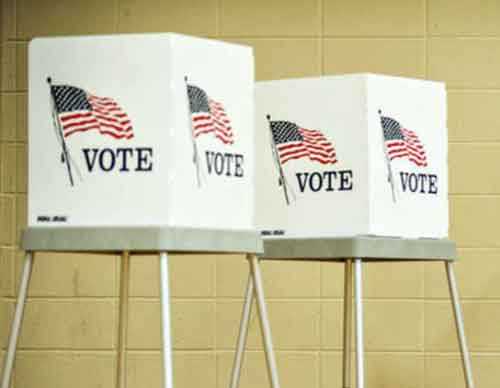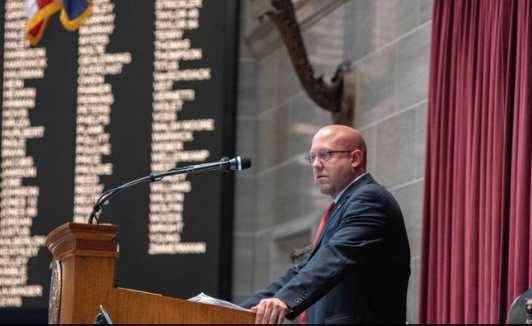Monday backers of Ballot Measure 1, Alaska’s Fair Share Act, scored their second courtroom victory in a week as the Alaska Supreme Court affirmed an earlier Superior Court ruling upholding the fundamental constitutional rights of Alaskans to vote on Ballot Measure 1 this November.
An industry group funded by the international oil producers opposed to Ballot Measure 1 sought to keep Alaskans from voting on Ballot Measure 1 by attacking Alaskans’ fundamental constitutional rights to engage in direct democracy by initiative, engage in free speech in support of political change, to have their valid signatures counted on the initiative petition, and to vote.
“Alaskans should be offended that an industry group funded by international oil producers based in Texas would try to take away our rights to engage in free speech, our rights to have our valid signatures counted on the initiative petition, and our rights to vote on Ballot Measure 1,” said Robin Brena, the oil and gas attorney who argued the case before the Alaska Supreme Court. “I understand the producers don’t want to pay us a fair share for the oil they take from Alaska, but to try to strip us of our fundamental constitutional rights to avoid paying a fair share is an affront to all Alaskans.”
Monday’s ruling removes any doubt that Alaskan voters have those core constitutional rights and will have the opportunity to vote in support of recovering a fair share of Alaska’s oil resources by passing Ballot Measure 1 on November 3rd. The Alaska Supreme Court’s brief order will be followed by a longer opinion explaining its reasoning.
In the Superior Court decision affirmed by the Alaska Supreme Court, Judge Thomas A. Matthews noted the dispute was over the salary of petition circulators, “[b]ut more than that, it also involves a dispute over fundamental constitutional rights.” Matthews identified and protected Alaskans’ fundamental constitutional rights by holding, “[t]he Alaska Constitution enshrines the right of the people to propose and enact laws by initiative” as well as to “engage in core political speech.”
Setting aside the industry group’s efforts to disallow tens of thousands of valid signatures on the initiative petition, Matthews noted, “this case does not involve false signatures. In fact, there is no allegation by [the industry group] that the signatures were false or defective in any way-only that the circulators were paid too much.”
[content id=”79272″]
Matthews found the industry group’s arguments, if successful, would violate Alaskans’ rights to engage in direct democracy by initiative and to engage in free speech in support of political change. As a result, Matthews held, the “disregard of thousands of otherwise valid signatures operates like a sledgehammer on a mosquito.” Matthews held the industry group’s arguments to be “constitutionally flawed and would result in the disenfranchisement of thousands of Alaska voters who did nothing wrong.”
While the industry group is listed as the plaintiffs in the case, reports filed with the Alaska Public Offices Commission show that the suit was actually bankrolled by ONEAlaska, a group formed to oppose the initiative. A recent analysis by the Houston Business Journal showed that over 96% of their funding comes from four international oil producers based in Texas.
[content id=”79272″]
“If I know my fellow Alaskans, our opponents’ ploy to strip us of our rights will backfire,” said Brena, “and will give the Vote Yes campaign critical momentum going into the election. We are glad that the Supreme Court saw through this transparent attempt to take away our constitutional rights as Alaskans.”
While Alaska’s Fair Share has experienced a surge of grassroots support, their opponents are struggling to turn their more than $10 million in funding from international producers into actual support in Alaska. According to ONEAlaska’s latest financial disclosure, only four Alaskan individuals have contributed to its campaign.
This was the second victory in a week for Ballot Measure 1 at Alaska’s highest court. Last week the court ordered Lt. Gov. Kevin Meyer (R-Anchorage) to correct the official ballot summary for the initiative.
Ballot Measure 1 would increase Alaska’s share of production revenue from Alaska’s three largest and most profitable oil fields and make production tax filings public records. It will be voted on in the November 3 general election.
For additional information contact Robin Brena at (907)258-2000 or (907)223-1000. For campaign related inquiries contact campaign manager David Dunsmore at (907)278-8000 (headquarters) or (907)830-4288 (cell). Learn more about Ballot Measure 1 at www.AlaskasFairShare.com.
###






